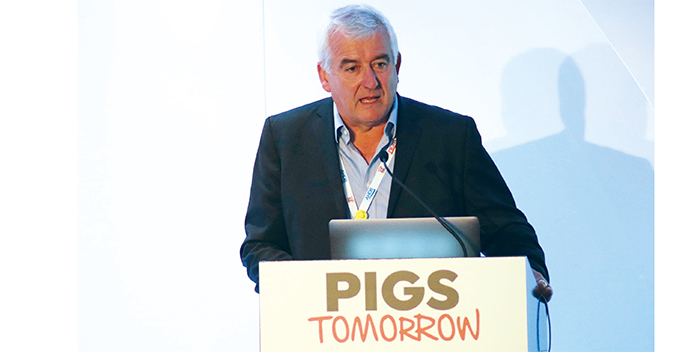Mike Sheldon chairs the AHDB Pork board. He stepped down as chair of Red Tractor’s pigs sector board in November
Something to be proud of
It is worth stopping to reflect on just what has been achieved by the UK pig sector when it comes to playing our part in meeting the challenge of antimicrobial resistance.
We know that the problem is a global one, and mostly arises from abuses within the human health system. And although the UK pig sector has delivered a fantastic achievement, it is true that the challenge for the world and for our sector remains, and that there is still much to do.
It is equally true that delivering further reductions in antimicrobial use will be progressively more difficult.
Nonetheless, I invite all members of our sector to stop for a minute and consider the enormity of what has been achieved, and how brilliantly the industry has come together to make that achievement possible.
Clear and present danger
We have spent much of 2019 worrying about the threat of African swine fever (ASF). When it reached Belgium, there was a flurry of activity at the prospect of its imminent arrival in UK.
This hasn’t happened… yet. Our Belgian colleagues have done an excellent job in containing the risk, and our Polish friends have made mighty efforts to slow the spread westward towards their commercial pig herds.
When a threat as severe as ASF fails to materialise over time, it is vital to keep our guard up,
as any complacency could be disastrous.
So, let me take this opportunity to urge everyone to maintain their vigilance: make sure all visitors respect your biosecurity precautions and don’t let a single pork product onto your site in a lunchbox.
A growing challenge and opportunity
The environment has also been a rapidly growing concern. Not long ago, it could be argued that most people might claim good environmental behaviour, but, when it came to their shopping basket, made a choice based on price, convenience and visual appeal. This is still true for many, but not so much for an increasing proportion of the population.
Compared to some other proteins and to some of the highly industrialised meat substitute products emerging on the market, we have a great story to tell.
The challenge for our sector is to gather the evidence to back up our environmental credentials, just as we did for our antimicrobial use. We then need to take the opportunity to tell our story, confident that we have substance to our claims. Here at AHDB, we are all up for that challenge.




